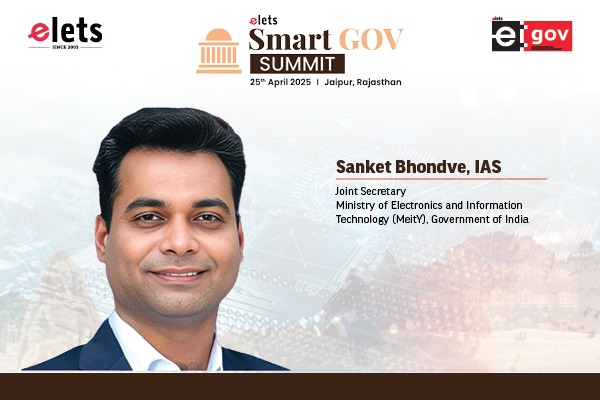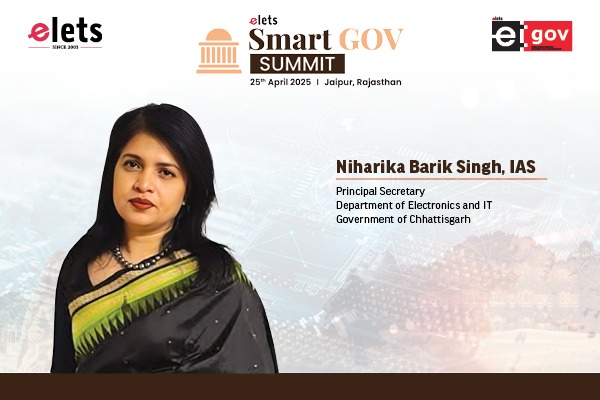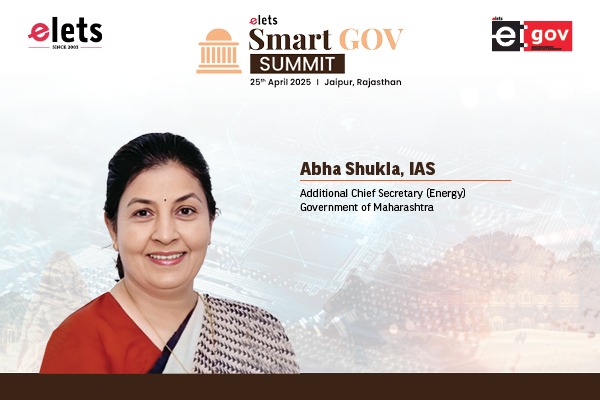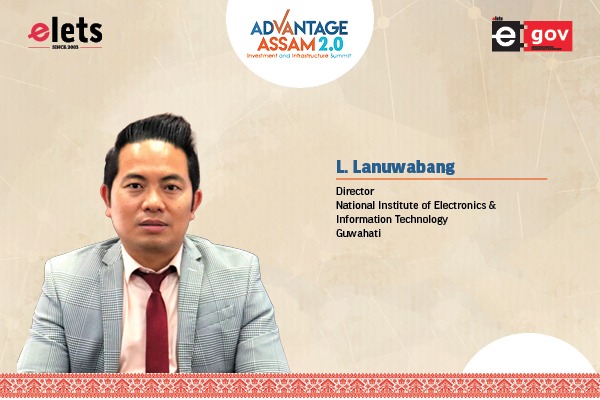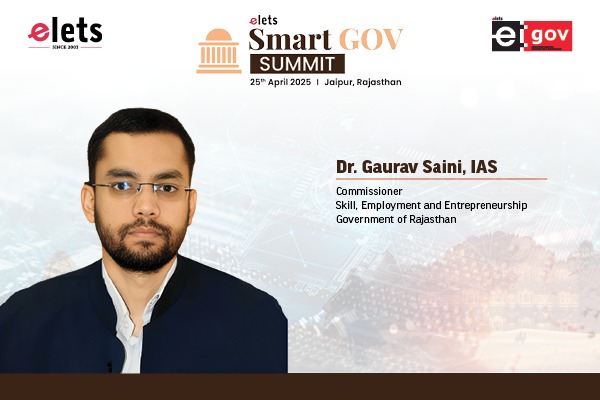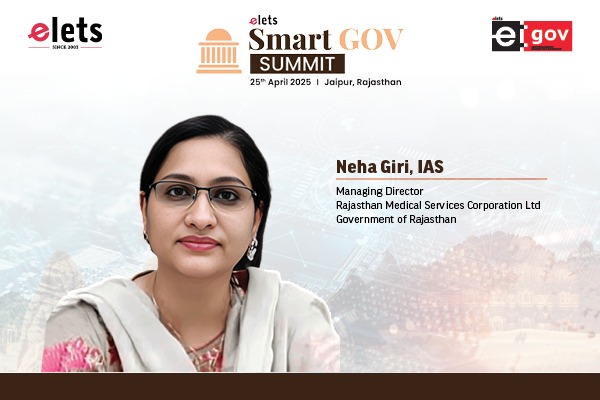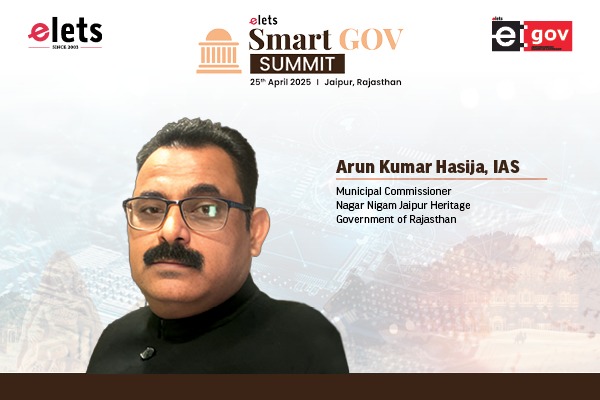The proposed right to services legislation in some states of the country will make government officers pay for delay in service delivery. Will it really work?
By Pratap Vikram Singh

The experience of a common man while availing services to a government office, be it bank, utility departments or a local hospital, has not always been positive. This is unlike the private sector companies, which understand and value their customers, and where the productivity and innovation are the key focus areas, One always wishes if the attitude of the person sitting on the other side of the desk will change ever. It hasn’t changed much in the last 63 years of independence. The White conceded freedom to India and left the country after 1947, but their very seats were occupied by natives, who still continue to follow the legacy left by the British.

The genesis

In United Kingdom, Prime Minister, John Major initiated a political resolution for improving the public services in July 1991, which is popularly called as Citizen’s Charter. The Charter aimed at making the administration accountable and citizen centric, ensuring transparency and easy access to information. It also puts forth measures to cleanse and motivate civil servants, besides adopting a stakeholder approach.

Like many other countries across the globe, India too adopted the Citizen’s Charter approach to reform the legacy of the Raj era. However, the public administration in India didn’t go far in transforming itself, as UK and many other countries did.
Proposed legislation
In a move towards institutionalising citizens’ charter and cementing it under a legislative framework in the country, the Executive in some of the Indian states are trying to push through legislation on ‘Right to Services’, which would guarantee the delivery of government services within a stipulated time frame.
It would be similar to some of flagship legislations, having a direct impact on governance [in terms of transparency and accountability], akin Right to Information and Mahatma Gandhi National Rural Employment Guarantee programme. It would seek to weed out the inefficiency and delay in decision making and establish accountability and efficiency in governance.
 Anurag Jain
Anurag Jain
Secretary to Chief Minister & Secretary, Dept of Information Technology, Govet of Madhya Pradesh
” Almost 691277 applications were received in November 2010 out of which 680611 were disposed on time. In December, 508047 applications were received & 493270 were timely
disposed”
Let us consider the law proposed by the states like Madhya Pradesh, Bihar and Punjab, as the basic structure of the right to services, deliberately ignoring the variations in one or the other provision. In a typical case of non compliance, where the designated official is not able to deliver the services in time, there are provisions under which an applicant can go to a ‘first appellate’ authority, which would look into the matter and take a decision within a fixed timeframe [the duration varies from service to services and state to state.
If the first appellate fails to do so, or if the applicant seeks to pursue his case further, he or she can make an appeal to the second appellate authority, who has to again dispose the case in a pre-scheduled duration.
Failing to deliver the service on time, the designated official would be liable to punishment The failing officers would be penalised with deduction of Rs 250 or Rs 500 (varying from state to state), each day from his/her own salary. If the first appellate officer fails to ensure delivery of services, without valid reasons, he will be liable for a fine of minimum Rs 500 per day, but the total fine would not to exceed the limit of Rs 5000.
For the over all administration and management of work under the legislation, the law also proposes to set up a Public Service Delivery Commission.
The legislation intends to sensitise the public officials towards pro-actively responding to the citizen’s demands. It aims to bring a cultural transformation in the state-citizen interface. The enactment would stimulate the disposal of cases in a faster manner thereby saving citizens’ time and resources.
Pre-independence, the Indian Civil Servants (ICS) were not accountable to the elected representatives. Later, in the independent India, the civil servants were made accountable to the people’s representatives. However, over the years, the political masters and the civil servants have grown a quid pro quo like situation where both take good care of each other. The given legislative measure would provide the reigns into the hands of citizens, while dealing with the nexus between political executives and the bureaucracy.
Speaking on the proposed RTS legislation, B Shadrach, Executive Director, Telecentre.org Foundation said, “This would make citizens aware of their rights. However, the institutions that practice right to services would need to re-engineer its processes to respond to active demand from citizens from that of a passive demand that exists today.”
 B. Shadrach
B. Shadrach
Executive Director, Telecentre.org Foundation
“The institutions that practice RTS would need to re-engineer its processes to respond to active demand from citizens from that of a passive demand that exists today.”
Its adoption
Unfortunately, at the Central Government level, even draft legislation on right to services is yet to see the light of the day. Nevertheless, taking one step ahead towards good governance, Madhya Pradesh has become the pioneer state to bring such the legislation on right to services, called as the Madhya Pradesh Public Services Guarantee Act / Lok Seva Adhiniyam, 2010. It is followed by the state of Bihar, which claims to be working on a much more ‘comprehensive’ legislation that would cover as many as 15 departments and more than 60 services. Punjab, too, is planning to bring an ordinance on the same.
On the other hand, Maharashtra, is working on some what different legislations, in comparison to above mentioned states. It is planning to come up with ‘Mandatory Electronic Delivery of Services Bill’ to deliver the services within a stipulated timeframe but strictly through the electronic channel. The most recent draft IT Policy of the state government envisions to e-Enable almost every government department under the state authority and mandate them for delivering their services in an online fashion, a step which would be a boon for many people who have to do the rounds and rounds to a government office at the block or at the district level for availing basic government to citizen services.
Similarly, at the Centre, Department of Information Technology, Ministry of Communication and IT too, is working on similar draft legislation on electronic service delivery.
MP Public Services Guarantee Act 2010
In Madhya Pradesh, the delay in delivery of services related with education [like approval, non approval of scholarship], land records and mutation and trade licenses and the subsequent harassment of citizens sought the attention of Chief Minister Shivraj Singh Chauhan. Taking an early cognizance of the citizen harassment and friction in the state – citizen interface, the state dallied forth for MP Public Services Guarantee Act 2010.
Previously, as per some state government officials, the Chief Secretary of the state used to monitor the delivery of services offered by the various departments. Eight years back, a citizen’s charter was set up for reviewing the performance of the various departments.This stock taking and monitoring by the then Chief Secretary was not continued further by his successors. The introduction of legislation causing change in the status quo, was the result of the conviction at the top most level in this central Indian state.
One of the most unique aspects of the MP Public Services Provider Guarantee Act is that the amount by which the designated non compliant official would be penalised, the same amount would be given to the concerned applicant in form of compensation. “The process to deduct the fine amount from the guilty officers has been fixed and at the same time the applicant will get the compensation within a period of 30 days,” Anurag Jain, Secretary, Department of Information Technology said. The Act covers nine departments and 26 services across the state.
He added: “The legislation intends to create an ambience for speedy disposal of applications and faster delivery of services to the citizens.” He further informed that almost 6,91,277 applications were received in the month November 2010 out of which 6,80,611 were disposed of by providing services on time. In December, 5,08,047 applications were received out of which 4,93,270 were timely disposed.
Bihar Right to Services Bill 2011
In Bihar, the state government is quite serious for a transformation in the socio-political and economic landscape of the state. Ashish Bose, the economic analyst, had coined the term BIMARU for the under performing state which included the states of Bihar, Madhya Pradesh, Rajasthan and Uttar Pradesh. However, having scored the highest GDP growth at 16.59 percent [in 2008-09] and taking a series of initiatives in reforming governance in the state, one might have to re-think the appropriateness of calling the state as BIMARU.
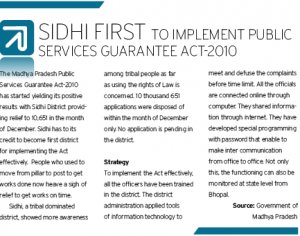 Following a legislation to curb corruption among the public officials in the state – Bihar Special Courts Act 2009, which goes to the extent of confiscating the property of arrested held public servant even in trial stage, the state government is working on the draft bill on ‘Right to Services’ to establish accountability and efficiency in the public administration. Government is planning to table the Bill in the budget session of the state assembly.
Following a legislation to curb corruption among the public officials in the state – Bihar Special Courts Act 2009, which goes to the extent of confiscating the property of arrested held public servant even in trial stage, the state government is working on the draft bill on ‘Right to Services’ to establish accountability and efficiency in the public administration. Government is planning to table the Bill in the budget session of the state assembly.
The Bihar government plans to widen the scope and coverage of service delivery Act, encompassing more than 15 departments and at least 60 services. Quite interestingly, the state government is also planning to include ‘tatkal services’ under the proposed legislation. The Act will have provisions for delivery of services in a much lesser time, charging higher fee from the applicant. For example, it could apply on obtaining a new driving license or caste certifi- cate, much before the stipulated timeframe.
It has also been learned that for an impartial overseeing and monitoring of the Act, the state government is considering setting up Public Service Delivery Commission, where in the Commissioner and other officials would be recruited from outside the government, on the lines of the various State Information Commissions.
 Deepak Kumar, Principal Secretary, Department of General Administration, said, “Our agenda is zero tolerance while dealing with inefficiency and corruption within the government.” He added: “Our ultimate objective is to motivate officials to be prompt and deliver information and services well within the deadlines.”
Deepak Kumar, Principal Secretary, Department of General Administration, said, “Our agenda is zero tolerance while dealing with inefficiency and corruption within the government.” He added: “Our ultimate objective is to motivate officials to be prompt and deliver information and services well within the deadlines.”
The umbrella of services would include, inter alia, distribution of certificates, issuing of trade licenses, processing of police verification for passport and caste certificates. The state is also deputing IT managers at the district level and IT assistants at the block level to look after the delivery of services and its subsequent monitoring.
We need to establish accountability in government
What does the proposedlegislation on right to Services aims to achieve in Bihar?
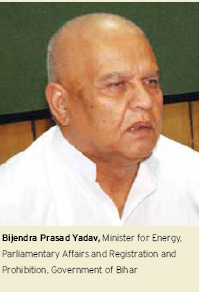 The Right to Services would accelerate the decision making process in the government and would increase the administrative efficiency, since lot of malpractices and corruption prop up in the system because of the late decision making in the government. The legislation will cover every government department and public servant under its purview and it would go a long way in establishing the accountability of the public servants.
The Right to Services would accelerate the decision making process in the government and would increase the administrative efficiency, since lot of malpractices and corruption prop up in the system because of the late decision making in the government. The legislation will cover every government department and public servant under its purview and it would go a long way in establishing the accountability of the public servants.
can you tell us briefly about the state of proposed legislation on right to Services?
The draft of the right to services legislation will be approved by the cabinet and then would be tabled in the state assembly in the coming Budget session. The regulatory body and the nature of penalties are being prepared in the draft. Various thoughts are under consideration varying from financial penalties ranging from `500 to `5000 and could go up to re-consideration of official’s promotion.
What would be the measurable impact of rTS?
During the British Raj, the work load was quite less. The public interface of the government was too little as compared to these days situation. The rules, norms and regulations need a lot of improvement. This Act would be milestone in fixing accountability, since before you catch a corrupt official you need to put in place such systems through which the accountability is clearly defined.
Punjab Right to Services Bill 2011
In queue, Punjab too is planning to bring an ordinance on right to services in not more than a month. The state Administrative Reforms Commission, which was entrusted to come up with recommendations on the same, has given some “useful suggestions” to the state government.
Articulating the objective of the enactment, Dr Pramod Kumar, Chairman, Punjab Administrative Reforms Commission said, “I think it is more than a tool to fight corruption, it the tool to ensure some basic rights of the citizens- which includes Right to Identity, Right to Dignity and Right to Efficiency.” He said it is quite significant to put faith in citizenry. The state has already taken away the criteria of asking to citizens for affidavits to prove their identity and authenticity of the documents. There are specific sections under the Indian penal Code – IPC Section 199 & 200 – which deals with claims under the self declaration.
The state also aims to set up more than 600 community police stations – which would have different teams for counseling on domestic affairs; economic offences [manned by chartered accountants and people from finance and banking sector], non residential Indians, and women cell.
Besides, a citizen can file a complain online to a police station and the concerned cop will be required to respond to it within seven days period, taking a clear decision, whether the complain is being considered for First Information Report (FIR) or it has been just updated in the daily dairy report. Since the decision taken by the cops would be recorded online, they will be under constant scanner and can be held responsible for a particular decision, non suiting in the best interest of the applicant. Moreover, ensuring the right to efficiency, the government is working upon reducing the response time and timely delivery of information and services to the citizens. In case of non compliance, there is provision in the proposed state law of penalising the official for Rs 250 per day. Additionally, the performance under the case disposal would also be linked to performance audit of the civil servants.
Maharashtra Mandatory Electronic Delivery of Services Bill
Maharashtra’s Mandatory Electronic Delivery of Services Bill would take the state ahead from the current model of providing ‘single window’ service delivery to ‘no window’ service delivery, which means a citizen may not really required to go to a particular government office or an outlet to avail G-2-C services. Reportedly, although the focus of the Act would be more on providing services to citizens in an electronic mode, there would also be some provisions for setting up the accountability into the state government functionary, as is the case with RTS in the respective states.
The state would thus eliminate the human interface in the G-2-C interactions. Now, a person living in rural area may no more be needed to come to a district head quarter or a block office to avail basic government services. He can drop in to any of the tele centres [the common services centre or to the Panchayati Raj kiosk- powered by broadband internet] in his vicinity and avail the services while paying a small amount of money.
“The legislation would change the way public delivery of services function,” Vijayalakshmi Bidari Prasanna, Director, Department of IT, Government of Maharashtra said. She explained that there are three stages of e-Government advancement, which includes: informative, transactional and integrated.
Currently, various departments under the state government are at different level of e-Government.
 Through this Act, the state aims to attain the third and topmost level of e-Government – that is integrated level of e-Government, where in the state departments can share and interact through a complete back end integration. She pointed that the state is also planning to constitute an Electronic Service Delivery Commission for the effective service facilitation and monitoring. Moreover, the IT Department is also working on to include provisions which would enable the authorities to be receptive on taking suggestions and requests from citizens in terms of its online presence.
Through this Act, the state aims to attain the third and topmost level of e-Government – that is integrated level of e-Government, where in the state departments can share and interact through a complete back end integration. She pointed that the state is also planning to constitute an Electronic Service Delivery Commission for the effective service facilitation and monitoring. Moreover, the IT Department is also working on to include provisions which would enable the authorities to be receptive on taking suggestions and requests from citizens in terms of its online presence.
Besides, every government office [department] will have Electronic Service Delivery Officer to look after the processing and disposal of the online application requests. In terms of outcomes, Prasanna is quite confident that the Act would be much more impactful than the Right to Information. The Department of IT aspires to make available as many number of services online as many other countries of globe like Singapore and South Korea do, where 300 to 400 online services are being availed by the citizens. “We are targeting to offer at least 100 services online in five years down the line,” she averred.
EDS Bill of Government of India
Kapil Sibbal, Union Minister for Telecom and Information Technology has recently announced a hundred day action plan for its Ministry, which includes drafting of the Electronic Service Delivery Bill by the Department of IT. The Bill, when passed, would put an obligation on the various central government ministries and departments to digitise and provide most of the services online, in a timely phased manner.
ICT for right to services
The monitoring of the disposal of cases within stipulated time frame by the 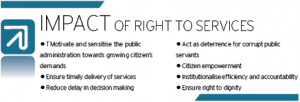 designated official, disposal of cases on the level of the first and second appellate authorities and generation of real time management information system (MIS) reports, would be much more easier through leveraging the information technology (IT). In MP, the state government is using IT for generation of MIS reports, however in an off line mode. As per the state IT department, it will very soon start work on the real time data entry and MIS report generation. In Bihar, the draft legislation on right to services also envisages
designated official, disposal of cases on the level of the first and second appellate authorities and generation of real time management information system (MIS) reports, would be much more easier through leveraging the information technology (IT). In MP, the state government is using IT for generation of MIS reports, however in an off line mode. As per the state IT department, it will very soon start work on the real time data entry and MIS report generation. In Bihar, the draft legislation on right to services also envisages
Challenges
While there have been rounds of applause from many corners of the country on having such a legislation, there is another school of thought which abstains from advocating addition of one more legislation to the library of laws and enactments in the country. Amita Singh, Professor & Chair, Centre for the Study of Law and Governance, Jawaharlal Nehru University put forth: “What citizens need right now is simplification of regulations. More regulations in the area of provisions for basic services is a symptom of a failing leadership even though it appears on the surface as another right for empowering ordinary people.”
This school of thought cautions that the law might delay further, the already constrained access to justice as the bureaucracy would now legitimately delay as per the provisions of 30 and 60 days to appeal. A re-appeal would devastate an ordinary citizen seeking, medical, livelihood, financial support, educational assistance, inter alia. “The tendency to make laws should stop now and the ability to lead within the enormous library of laws should now be enhanced to save this Republic from the white elephant of governance,” she opined.
According to Shadrach, “The ‘actors’ themselves pose greater challenges.” He points out to the nexus between the legislature, executive and public service authorities that prevail across the country and which continue to pose a greater challenge. The moral deficit in the private sector too will be a huge challenge when it comes to services, for a good majority of services are dealt with by the private sector today. He added: To add to all these, if the media and the civil society fail to respond to the needs, these efforts would only be futile exercises conducted in a vacuum.
Be a part of Elets Collaborative Initiatives. Join Us for Upcoming Events and explore business opportunities. Like us on Facebook , connect with us on LinkedIn and follow us on Twitter, Instagram.
"Exciting news! Elets technomedia is now on WhatsApp Channels Subscribe today by clicking the link and stay updated with the latest insights!" Click here!





